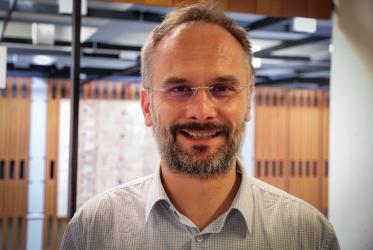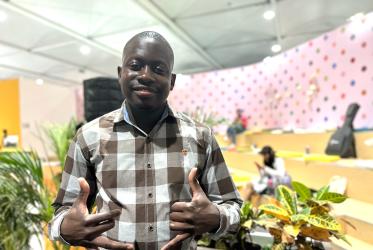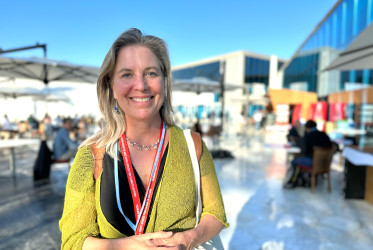Displaying 1 - 20 of 29
What can churches do to prevent modern slavery?
22 February 2024
Ellyanne Chlystun-Githae Wanjiku to COP28: “listen more to children”
13 December 2023
Neddy Astudillo at COP27: “We still have the power to protect life”
18 November 2022
Christian Brooks: “Faith and climate really go hand-in-hand”
14 November 2022
Christ’s Love (Re)moves Borders – GETI 2022 in images
13 September 2022


















